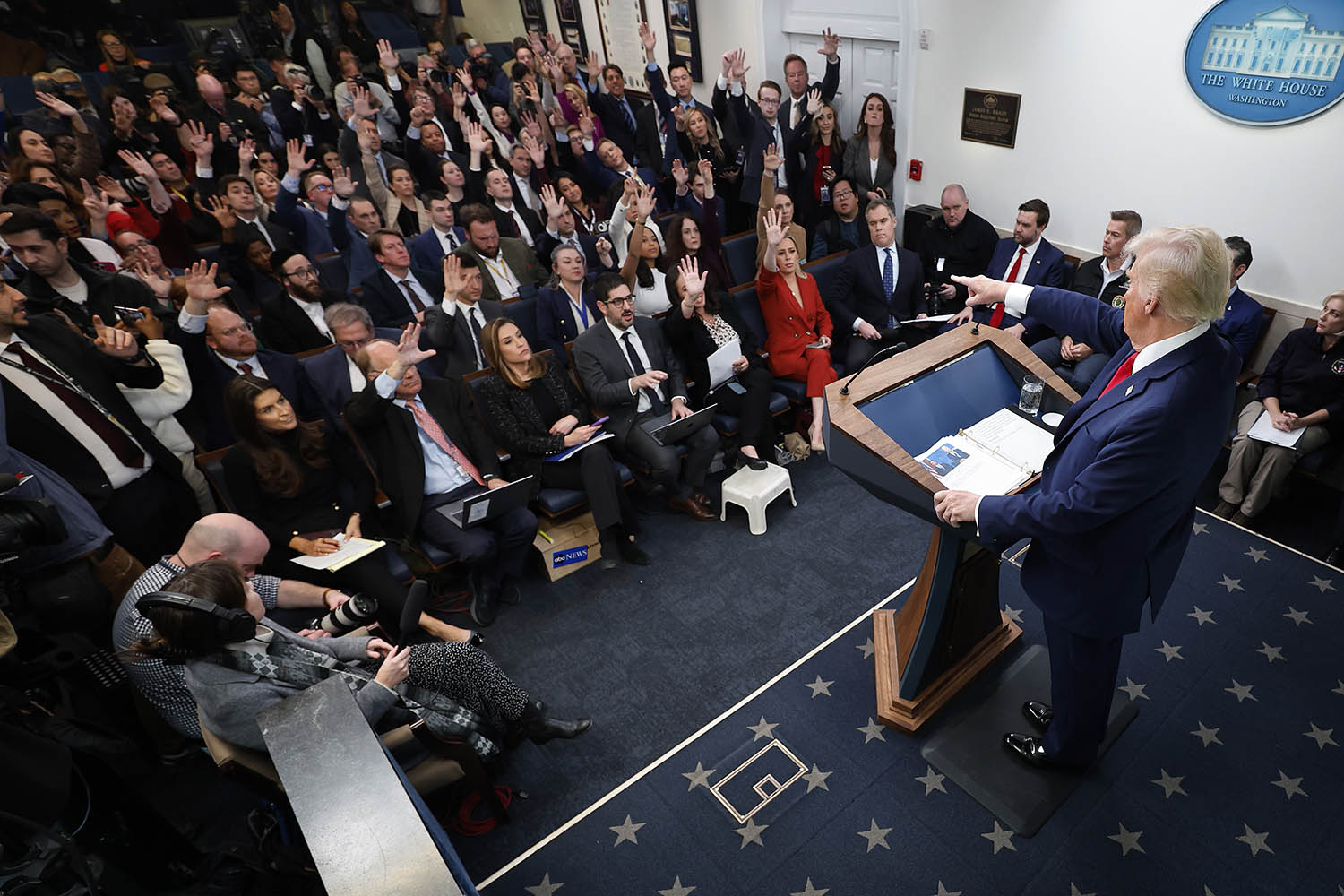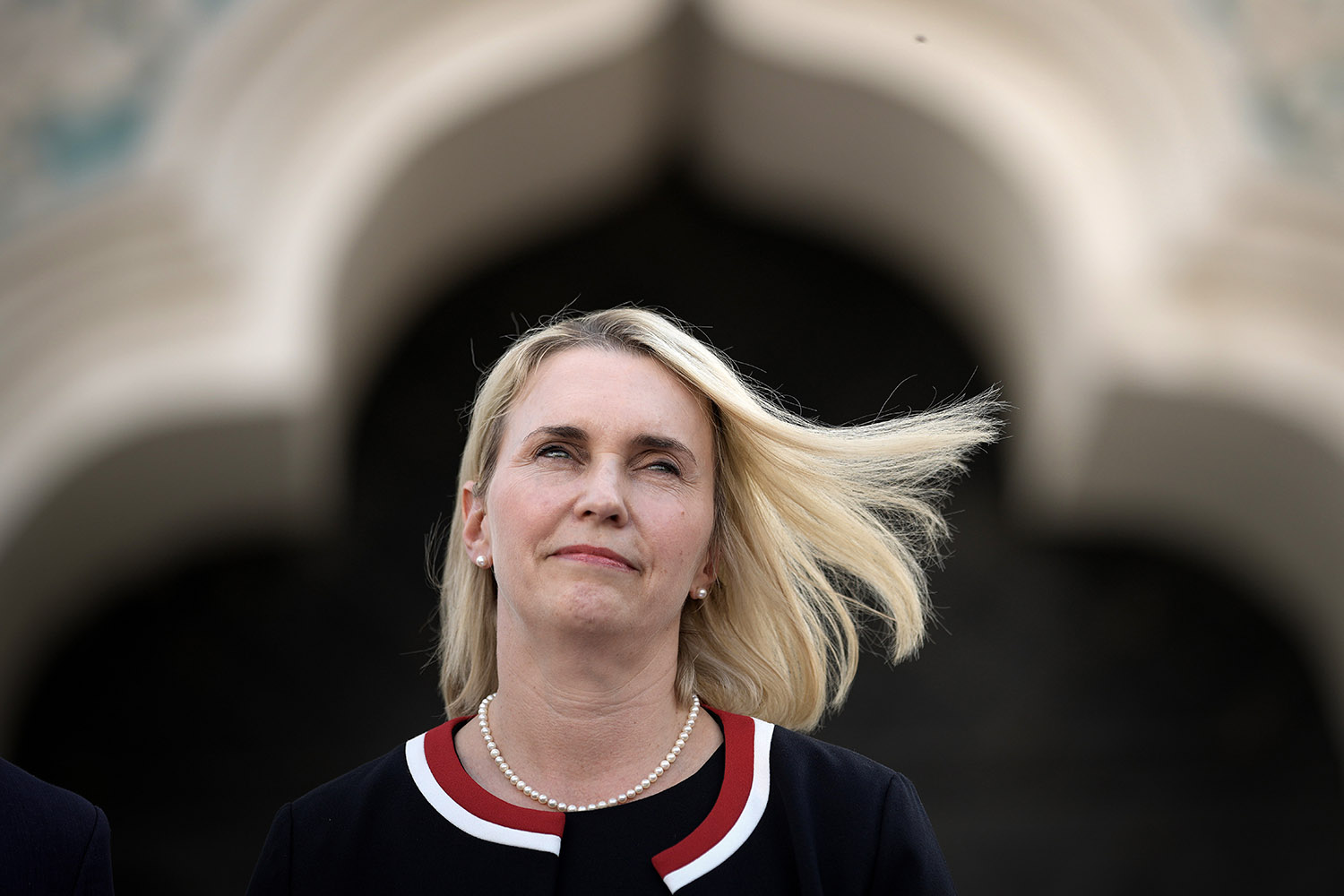
World’s biggest news organisation decides to fight the new administration’s reality distortion operation
The Associated Press is suing senior members of President Trump’s staff, demanding to be let back into the White House press pool and onto Air Force One.
So what? The AP lawsuit is a test case. It asks three fundamental questions about Trump’s power as Emmanuel Macron and Keir Starmer head to Washington for answers:
- Can Trump edit the world map at will?
- Can he bully the press into submission?
- When will he double down, and when will he blink?
Gulf of Amexica. Trump banned the AP – the world’s biggest news agency – from parts of the White House and the travelling presidential press pool because it has refused to call the Gulf of Mexico the Gulf of America.
The small matter of the name of a body of water is a big deal in the land of the First Amendment. As the lawsuit argues: “The Constitution does not allow the government to control speech.” Changing that would be “a threat to every American’s freedom”.
Oddfellows. Fox News and Newsmax have joined the Washington Post, the New York Times and other media organisations in calling for the ban to be lifted – an unusual alliance in response to systematic efforts by the new administration to bend the media to its will.
Trump’s campaign against the media also includes
- multiple lawsuits against Meta, ABC News, CBS News, the Des Moines Register and the pollster Ann Selzer;
- ending federal news subscriptions and amplifying false claims that the Biden administration paid media outlets to create “good stories about the Democrats”; and
- appointing a new Federal Communications Commission chief who quickly started investigating the sponsorship practices of NPR and PBS, the national public broadcasters.
The First Amendment’s free speech protections have been sidelined by a president trying to court obedience before his threats can be tested against the constitution.
Where this has worked.
- In December, ABC News settled with Trump for $15 million after its anchor George Stephanopoulos said the president had been found “liable for rape” when a civil jury in fact determined he was liable for “sexual abuse”.
- Last month, Meta agreed to pay Trump $25 million after he said the tech firm violated his rights when it suspended his social media accounts in 2021. Legal experts say both ABC and Meta could have won their cases.
Where this might work.
- Paramount, the parent company of CBS, faces a Trump lawsuit widely seen as frivolous alleging biased editing of a 60 Minutes interview with Kamala Harris. Paramount was reportedly trying to settle to smooth an $8 billion merger with Skydance, but has since signalled it may fight the case.
- If the FCC strips NPR and PBS of federal funding, local member stations will take a hit. That said, the rules the FCC is investigating have made public broadcasters less dependent on government cash – and individual states could plug any shortfall.
Where this isn’t working.
- The influential AP Stylebook, a gold standard for writers across the world, continues to call the Gulf of Mexico the Gulf of Mexico.
Yes, but Trump has grown wise to the strengths and weaknesses of the First Amendment over a decade of suing media outlets for defamation. An emerging strategy is to steer lawsuits towards the Consumer Protection Act, which prohibits false advertising.
- Trump’s case against the Des Moines Register relies on Iowa’s consumer protection laws in arguing that the publication of an ultimately inaccurate poll about the presidential race was “brazen election interference”.
- Trump’s lawsuit against CBS claims it violated Texas consumer protection laws in its edit of the Harris interview, alleging it had business reasons to make her look good.
Previous attempts to use consumer protection statutes against the media in 1983, 2020 and 2023 have failed because the First Amendment is not so easily circumvented.
What’s more… The White House can’t force the AP to change its style guide. The question is whether the AP decides access to Trump warrants caving to his whims.












